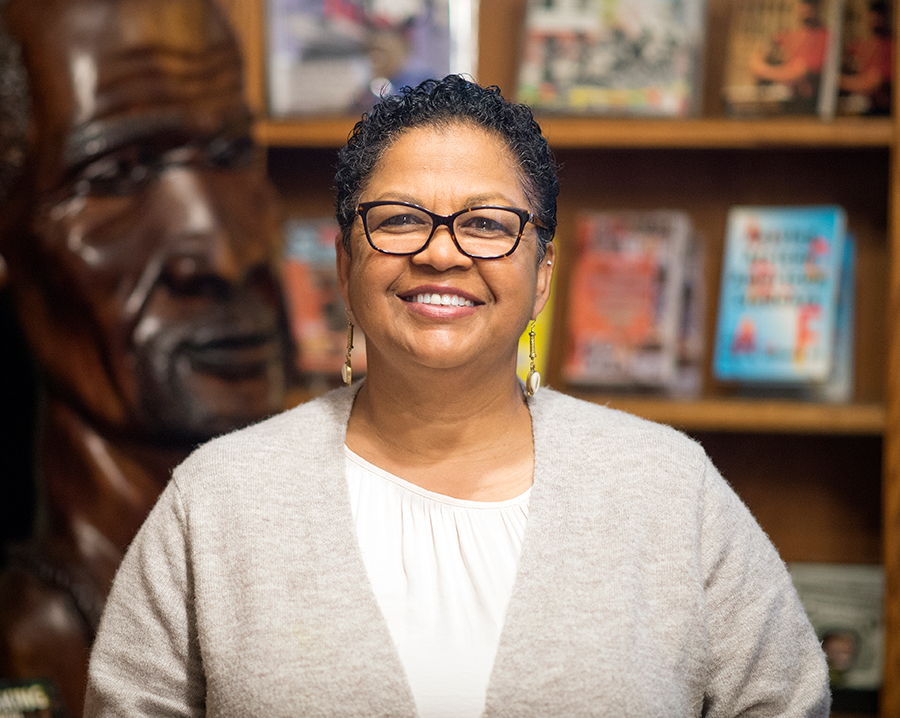Vonya Quarles
Co-Founder, Executive Director

Leading Edge idea: To reunite black and brown families by restoring child custody, foster care and adoption rights for people with criminal convictions.
What is your vision for your community? For California?
My vision for my community is free access to their children. One of the things that motivated me to pursue this project was the amount of time it takes for someone with a criminal conviction history to get their children out of the Department of Social Services. It can take a year, or it might never happen. We have a lot of children in foster care who don’t need to be there, who have loving families that want them and can’t get to them. My work is about freeing the children. FREE, or Family Reunification, Equity and Empowerment, will address barriers to family reunification for people with criminal convictions.
How were you inspired to get involved in this work? What motivates you?
I have lived experiences as an incarcerated woman and mother, a grandparent to a child who has an incarcerated parent or parents. I was in foster care myself and had to free my grandchild from foster care, and I have a son who was in foster care. I have talked to other advocates doing criminal justice work who have faced the same barriers in freeing their families from the system. The time is right now to address this problem and challenge the dominant narrative that, if you have a criminal conviction, you are definitely not a person who should have a child.
I have been arrested, sentenced, addicted to drugs and alcohol. That was a different time for me when I was motivated by fear and pain, and operated in that space. What motivates me now is love and organizing and an ever-widening circle. That allows me to continue my work, win or lose.
What problem are you working to solve?
In January 2018, they changed the Resource Family system, [which is part of the foster care system] and since then, it is a lot more cumbersome. The barriers have increased for people who want to bring their children home. We specifically want to address and change that process. I believe there can be a better way to protect the safety of California’s children and protect the continuation of families and family reunification.
At what stage is your idea?
What we are focusing on in the early stages of this project is lifting the narrative, changing the local and state policies that impact this issue area, and identifying the places in the state and federal systems where we can make impact. Maybe now is not the time for federal change but we can look at where we can make changes in the future.
Right now, we are still acquiring research for this new work. We have done studies around children with incarcerated parents, and those statistics are harrowing. They have a high likelihood of being incarcerated themselves, which we think intersects with children in foster care. When a child is in foster care, we know that something has failed.
What progress, if any, have you seen thus far in your work?
We’ve had success with changing the criminal history look-back period for public housing in Riverside County. We were successful with Prop 47 locally, and we have been part of statewide local campaigns like ban the box. These wins have informed FREE. We are part of the criminal justice network and have been able to share the model for our work with the people who will inform and carry it forward at organizations like Legal Services for Prisoners with Children, A New Way of Life Reentry Project and others.
What barriers have you faced, or continue to face in achieving your vision of change?
Bureaucracy is our biggest barrier. When there is a federal component to these systems, the local governments, whether it is the county or the city, are often shaped by the politics that are around them. In San Francisco, that’s not a bad thing. But in Riverside, it can be challenging. We have begun to build relationships in Riverside, and we think we have the right networks to change policy because, in addition to support from our partner community-based organizations, we also have the buy-in from local government for the need to change.
How will the world be different if you are successful? How will your life be different?
I am hoping that we create a model that can be employed throughout the country and that we can build a more equitable system. We can talk about the inequities that have created this problem all day long, and we can take what steps we need to take to change those systems, but we have to address the children that are caught in these systems right now and do what we can do for them. If I am successful, I will probably have a lot more work to do, but it’s work that’s real to me, and is serious to me. And the work will continue after the life of the fellowship.